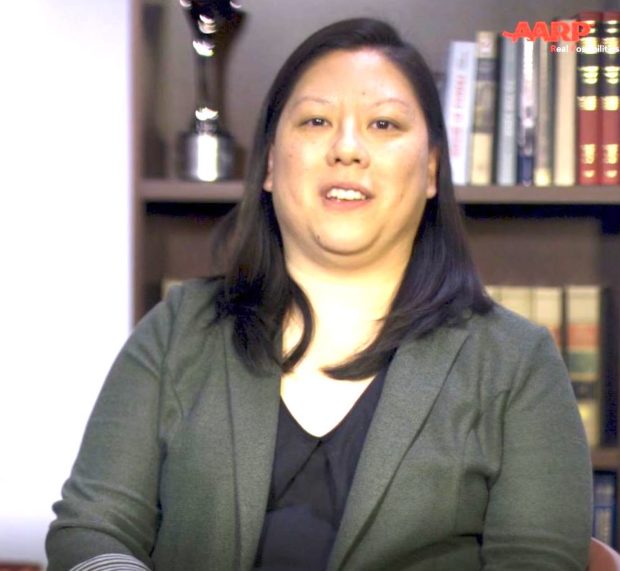BEWARE: Phone scammers pretend to be from gov’t agency or name brand

FTC Attorney Patty Hsue counsels those who receive calls from scammers claiming that they’re from the Chinese Consulate to hang up and report the call. AARP
WASHINGTON– Older Asian Americans and Pacific Islanders are often targets of (www.aarp.org/AAPIfraudsurvey)scammers who often use caller ID spoofing to mask their true location, making it appear that they’re calling from a legitimate or local number to raise the odds that you’ll pick up, AARP warns.
If you do, the robotic voice on the other end might claim to represent a utility, name-brand company or government agency, like Medicare, the Internal Revenue Service, and Consulates. It might tell you to press a particular key to learn more, or to get off a call list.
Maneesha Mithal, Associate Director for the FTC’s Division of Privacy & Identity Protection, said “We’re happy to be a part of getting the word out to Asian American Pacific Islander communities and encouraging people to report scams to the FTC. The more we hear from people, the more we can help fight scams.”
Whatever the message, don’t engage. Doing so can lead you to a real live scammer, who’ll pressure you to make a purchase or pump you for personal information, like a credit card or Social Security number. Even just pressing a key or answering a question alerts scammers that they’ve hit on a “live” number, and they’ll call it again and again.
DO’s:
- Do hang up on illegal robocalls.
- Do put your phone number on the Federal Trade Commission’s National Do Not Call Registry. It won’t stop fraudulent calls, but it will make them easier to spot because most legitimate telemarketers won’t call you if you’re on the registry.
- Do consider using a call-blocking app or device to screen your calls and weed out spam and scams. You can also ask your phone service provider if it offers any such tools.
- Do review a company’s privacy policies before you give it permission to call you. You might be authorizing them to share your contact information with others.
Don’ts:
- Don’t answer calls from unknown numbers. The FCC recommends letting them go to voicemail.
- Don’t press any keys or say anything in response to a prerecorded message. This lets scammers know yours is a working number and will lead to more spam calls.
- Don’t follow instructions to “speak to a live operator.” This will likely transfer you to a call center for an aggressive sales pitch or a phishing expedition.
- Don’t judge a call by caller ID alone. Scammers mask their location by tricking your phone into displaying a legitimate government or corporate number, or one similar to your own (a practice called “neighbor spoofing”).
“We must all vigilantly protect our information and can all play an active role in trying to stamp out potential fraud by reporting any suspicious activity,” said Daphne Kwok, AARP Vice President of Multicultural Leadership, Asian American and Pacific Islander Audience Strategy.
Report fraud at ftc.gov/complaint and visit aarp.org/fraudwatchnetwork for more information.”

